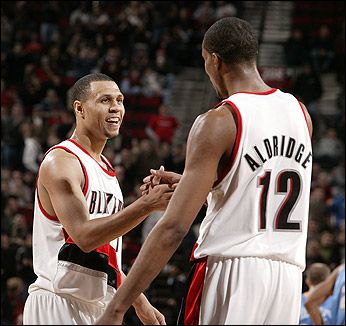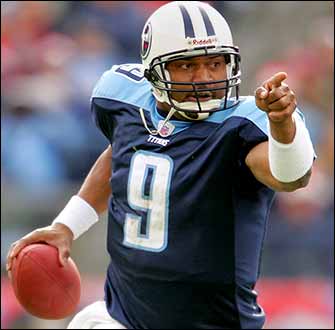
Vick, Lions spell Bad Newz for opponents
"They've seemed to be world apart, separated by geography and circumstance. But in reality, Michael Vick and the Detroit Lions had more in common than you might have thought.
The city of Detroit suffered through some of its hardest times in the past year. The auto industry stood on the brink, and the economy plunged the city into a level of darkness some thought it would never get out of. Unemployment rates went sky high, and families were wondering whether or not Mom and Dad would still be able to put food on the table.
Vick went through some of his toughest times in the past year. Working for pennies a day in prison, he hardly had enough money to buy a lap dance at the strip club upon release. He often questioned whether he could ever have a lavish lifestyle again.
But fate brought these two together: a city who went through economic disaster, and a quarterback whose struggles equaled those of his new town's."
Red Sox turn 'fair trades' off, officially acquire everybody
"It's a well-known fact that in certain baseball video games, if the 'fair trade' option is turned off, the user can trade for any high-profile player in the league, just so long as the positions match.
A lesser-known secret it that this also exists in real-life MLB, and the Red Sox found the button.
But just because Boston has acquired Adam LaRoche, Matt Holiday, Roy Halladay, Chase Utley, Tim Lincecum, Joe Mauer, Albert Pujols, Justin Verlander, Ichiro and Evan Longoria, don't think they're done quite yet."
Brett Favre stays quietly retired
"As he watched ESPN's latest news cycle roll by, Brett Favre realized there was a chance that there might not be any mention of him at all during the preseason. So he decided to bust out the big guns: he whispered to Peter King that he was 'possibly considering thinking about becoming interested in playing for the Bears.'
And just like that, off we went again on the Favre carousel."
Pendergraph, or Pendergraft?
"OK, Kevin Pritchard screwed up. Anyone can make mistakes. My question is, can we please move on from it?
On draft night 2009, Pritchard wanted to select Arizona State forward Jeff Pendergraph with the Blazers' pick in the second round. But a week later, at the practice facility, instead of a bruising, towering forward, in walks a nondescript, short redhead.
Apparently, Pritchard mispelled Pendergraph's name on his draft selection sheet, and accidentally took former Gonzaga forward David Pendergraft.
But is this really such a bad move? We've seen how Brian Scalabrine contributed to the 2008 NBA champion Boston Celtics, maybe Pendergraft can give the Blazers the same thing.
Personally, I think Pritchard may have actually planned it all along."
Ken Griffey Jr. named to 2003 steroids list
(Like I said, these are columns I won't be writing)












